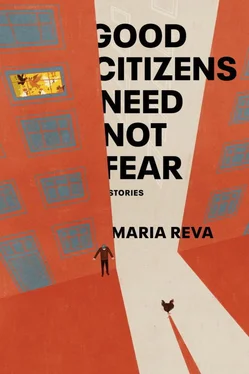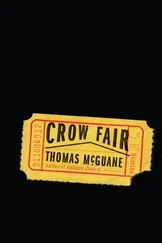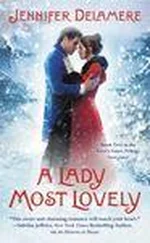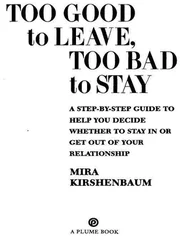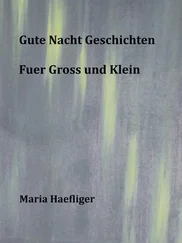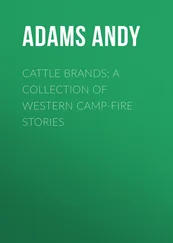Maria Reva - Good Citizens Need Not Fear - Stories
Здесь есть возможность читать онлайн «Maria Reva - Good Citizens Need Not Fear - Stories» весь текст электронной книги совершенно бесплатно (целиком полную версию без сокращений). В некоторых случаях можно слушать аудио, скачать через торрент в формате fb2 и присутствует краткое содержание. Город: New York, Год выпуска: 2020, ISBN: 2020, Издательство: Doubleday, Жанр: Современная проза, humor_satire, на английском языке. Описание произведения, (предисловие) а так же отзывы посетителей доступны на портале библиотеки ЛибКат.
- Название:Good Citizens Need Not Fear: Stories
- Автор:
- Издательство:Doubleday
- Жанр:
- Год:2020
- Город:New York
- ISBN:978-0-38554-529-7
- Рейтинг книги:3 / 5. Голосов: 1
-
Избранное:Добавить в избранное
- Отзывы:
-
Ваша оценка:
- 60
- 1
- 2
- 3
- 4
- 5
Good Citizens Need Not Fear: Stories: краткое содержание, описание и аннотация
Предлагаем к чтению аннотацию, описание, краткое содержание или предисловие (зависит от того, что написал сам автор книги «Good Citizens Need Not Fear: Stories»). Если вы не нашли необходимую информацию о книге — напишите в комментариях, мы постараемся отыскать её.
Good Citizens Need Not Fear: Stories — читать онлайн бесплатно полную книгу (весь текст) целиком
Ниже представлен текст книги, разбитый по страницам. Система сохранения места последней прочитанной страницы, позволяет с удобством читать онлайн бесплатно книгу «Good Citizens Need Not Fear: Stories», без необходимости каждый раз заново искать на чём Вы остановились. Поставьте закладку, и сможете в любой момент перейти на страницу, на которой закончили чтение.
Интервал:
Закладка:
I suggested we sew a girl’s coat, and Volkov loved the idea. One of his buyers, an Italian who lived in Canada (“double foreigner, double rich”), liked to spoil her daughter. As with every coat sold, we’d get a percentage of the profit. The ermine coat would earn a pretty sum. Volkov named a number high enough—in steady U.S. dollars, he assured us—to change a life, even ruin it. But the coat had to be perfect, he warned. The Italian who lived in Canada didn’t just throw her money around. She bred miniature dogs, judged competitions. She could spot a blemish a continent away.
Volkov turned to me. “Her girl’s about your age.” His gray eyes sliced across the key points of my body: chest, waist, hips. Other men had begun looking at me this way on the streets. I’d become the sum of my chest, waist, hips—someone to be assembled. Soon I’d start wearing Aunt Milena’s oversize frocks, wanting to be whole again.
That evening, when Mother pressed the tape measure to my skin, its cold metal lip made me think of Volkov. I conjured the buyer’s daughter instead, soft in her ermine coat. She trudged across a snowy field, no trees or bushes around, not even a speck of dirt, nothing to mark movement except the slow crunch of her feet, and she’d better not slip and fall because no one would find her, despite her tiny flags.
Before the Union fell apart, the foreign films that made it into our country were dubbed by the same man. You could hear his dentures slap against his gums. No matter the character—man, woman, toddler—same droning voice. It flattened the characters’ joy and sorrow, made us doubt their confessions. Did the heroine really love that man as much as she said? Vowing to die for him was going a bit far, wasn’t it?
Sometimes the dubbing lagged so far behind, you had to guess who said what, guess how the film ended.
Volkov’s buyers live around the world. Combined, they speak twenty-eight languages. I never met a single one of them, but somehow I knew they possessed that awful voice.
As Volkov said, the ermine coat had to be perfect: no visible seams or loose threads, the wooden claw clasps sanded by hand, lacquered without a single bubble. Normally a coat took four days to sew. This one ate up a week, two weeks. The closer Mother and Aunt Milena came to finishing the coat, the more undone they looked. Pins slipped from between their teeth. Their hands pecked at the same spot on the carpet over and over, until my sister or I found the pin for them. They seemed awake only at night, when they clattered around the kitchen chopping and frying whatever they could, mostly beets and onions. Aunt Milena would carry the ermine, a glowing bride in her arms, to the balcony, away from the smell.
How Mother and Aunt Milena met again, as told by Mother: Two years ago on her way home from work, her bus broke down near one of the villages. The next bus wasn’t due for another hour, and she had to use the ladies’ room. No such room was in sight, of course, only dirt fields and a few huts, their outhouses fenced off like prized bulls. Never had she relieved herself en plein air, like a brute, and she wasn’t about to start now. She paced the road, every minute stretching longer and longer and her panic building, until finally she sank into a ditch, hitched up her dress, rolled down her tights, and let out a long moan. Only afterward did she realize she had nothing to wipe with. The panties she’d worn that day were more symbol than fabric, and she couldn’t ruin the acorn-pattern tights she had crocheted herself, over five months, stealing time between work, chores, sleep. She would have reached for a leaf, but what was stinging nettle and what wasn’t? She’d rather use the back of her own hand, then lick it clean. So she did. When she straightened up, a voice startled her from above: “Larissa?” A woman was peering into the ditch. Not just any woman, but our former neighbor—now a villager with a rake in hand and a grin so wide that Mother knew she’d witnessed all. Determined to keep a shred of dignity, Mother did what any neighbor, past or present, should do: she invited Aunt Milena over for tea.
If my mother had boarded a different bus? If she’d chosen a different ditch? She’d still be speeding by Aunt Milena’s village.
The power cuts out every evening, but the moment of failure still catches me by surprise. Some secret flits between the lamps, refrigerator, television, the mixer in my mother’s hand, and everything falls silent. The silence scares me more than the dark. Should we take cover, too? From what? From whom?
In our daily blind spells we’ve learned the geography of our apartment. The matches live two steps from the kitchen, in the bathroom cabinet, bottom shelf, but I’m not allowed to touch them anymore. The first candle: three steps down the corridor, to the left of the record player. The second candle: four steps to the right, on the windowsill by the onions sprouting from mayonnaise jars. To pass the time Aunt Milena sings folk songs she learned in the village. My sister and I belt along, garbling the Ukrainian words, understanding few of them. I had a favorite song, an especially cheery one, until Aunt Milena told me what it was about. Two Cossacks take a girl into the dark forest and tie her to a pine by her own braids and set the pine on fire—the pine burns, burns and won’t go out, and the girl cries, cries and won’t quiet down. After that, I want to cut off my braids but Mother won’t let me. She says I’ll need them, although she won’t say what for. I tuck them under my collar and never ask Aunt Milena what the words in the other songs mean.
When the coat was finished, I tried it on for the last time. The red silk lining—bought from one of Mother’s old schoolmates, a urologist who also bred silkworms and therapeutic leeches—felt slippery and warm, as if the ermine had been freshly skinned. Volkov always said a good coat ought to feel like a second skin. This one became my own skin. To peel it off was painful. I’d briefly forgotten how cold the air felt, how sharp.
That evening, when my sister was safely asleep, Aunt Milena and Mother sat me down at the kitchen table, and spoke in stilted turns. They must have rehearsed who would say what. Aunt Milena: We’ll use the money from the coat to get you, your sister, and your mother out of the country. Mother: They need chemists like me in the oil fields in Canada. Aunt Milena: It’s so safe there, people leave their cars unlocked. (Mother, to Aunt Milena, voice low, off script: To provide pedestrians shelter from the polar bears.) (Aunt Milena, to Mother: Only in one town, up north.) Aunt Milena: Who knows, maybe one day you’ll meet the girl in the ermine coat. Mother: You’ll be wearing one just as lovely. Aunt Milena: Lovelier.
I asked why Aunt Milena wouldn’t come with us.
“Canada will only take people who are related,” Aunt Milena said, her voice suddenly hard, as if she herself had made the rules and the rules were perfectly sensible.
I waited to hear the rest of the plan.
Mother’s teeth were clenched, her smile rigid.
Aunt Milena looked silently at a point above my head, maybe at an older, taller version of me, who might one day come back for a visit and thank her for letting us go, and say, “Yes, dear Aunt Milena, surely it was all for the best.”
Back when we’d received our first batch of pelts, Aunt Milena had plucked a hair from one of them, held the hair over a lit match. It crackled, then burned back a few millimeters, into a neat nub.
“It smells just like burning human hair,” she told me, “which smells like burning fat, only sweeter. Fake fur will stink like plastic and curl into little beads. That’s how you can tell.”
Читать дальшеИнтервал:
Закладка:
Похожие книги на «Good Citizens Need Not Fear: Stories»
Представляем Вашему вниманию похожие книги на «Good Citizens Need Not Fear: Stories» списком для выбора. Мы отобрали схожую по названию и смыслу литературу в надежде предоставить читателям больше вариантов отыскать новые, интересные, ещё непрочитанные произведения.
Обсуждение, отзывы о книге «Good Citizens Need Not Fear: Stories» и просто собственные мнения читателей. Оставьте ваши комментарии, напишите, что Вы думаете о произведении, его смысле или главных героях. Укажите что конкретно понравилось, а что нет, и почему Вы так считаете.
